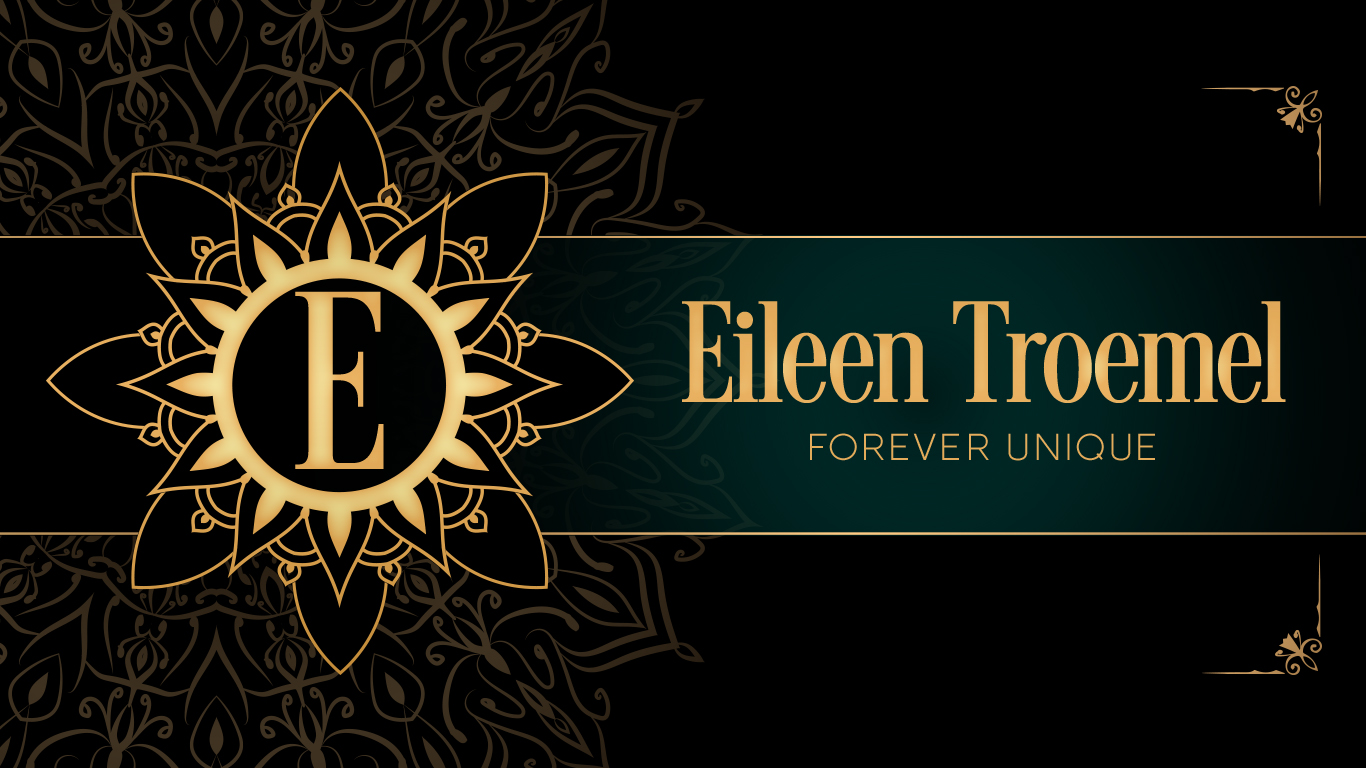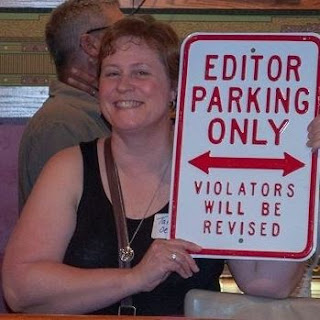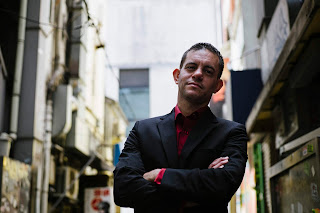Barbara Ardinger and I met through a writers group which we were both involved with. The group is long gone but I enjoyed Barbara’s directness and honesty so kept in touch. When I decided to start these interviews, She came to mind first as an editor to interview. She’s been editing for a long time and across a variety of genres. She’s my go to editing expert.
Tell us a little about yourself.
I was born in St. Louis, Missouri. I wrote my first story, which was a birthday present for my father, when I was in the second grade. After an encyclopedia salesmen came to our door, and my parents bought The Book of Knowledge, I read all 20 volumes. In high school I was the only member of the Creative Writing Club with a new piece every month.
After college, I taught high school English, speech, and French for three years, then went to graduate school. I earned my M.A. and my Ph.D. with majors in English and minors in psychology, speech/theater, and French and earned straight A’s. I moved to California after I finished my Ph.D. I’m the author of eight published books (two of them are novels with mostly female characters) and more book reviews and blogs than I can count.
I live with two cats: a Maine coon named Heisenberg and a Turkish van named Schroedinger. I’m a spiritual feminist and honor the Goddess. What do I love more than almost anything else? Musical theater—the whole continuum from La Bohème to Rent and nearly every Broadway musical in between, plus Gilbert and Sullivan. And I don’t think I’ve ever met a pun I didn’t love.
What is your background for editing?
I’ve been a freelance editor since the turn of the century and have edited more than 300 books including novels in all genres, academic theses and dissertations, nonfiction on many topics, children’s books, even some poetry. While I was earning my M.A., a friend asked me to edit his Ph.D. dissertation.
I was lucky to have really, really strict teachers in my literature and writing classes, so I know what good and correct writing is. Today, I give little lessons in “gooder English” as I edit. I stole that phrase, “gooder English,” from the singer Charo while I was doing technical editing for aerospace proposals. I’d just pat the engineer on the knee and say, “This is gooder English.” The guys always accepted my corrections. Nowadays, I also have a collection of books on English grammar, punctuation, spelling, and usage. I’ve read them all. When I’m editing and making changes, therefore, I know what I’m doing.
What are the most frequent errors you find?
In addition to sometimes hilarious spelling errors (“wholly sh-t,” “a sand partical in a dessert”), I find innumerable errors of punctuation, syntax, and logical reasoning. When a Russian author recently began obsessing about commas and semicolons, I explained English punctuation to him. I have told a few authors that they’ve used up their entire lifetime supply of semicolons, i.e., they’re using too many and using them incorrectly.
Syntax is the order of the words in a sentence. Every language has its own idiomatic syntax: the way words go together is hard-wired in our brains. But sometimes I’ll run into sentences like these: “‘What is the matter?’ kept moaning with a cry Mary.” Or: “‘Senya is your brother,’ interrupted the story Sarah.”In idiomatic English, the subject comes first, then the verb, and adverbs usually precede their verbs. This author reversed the normal order. (And look—I’ve just given you one of my lessons.)
As much as faulty punctuation and syntax, I also see errors in reasoning and logic. I recently gave an author a lesson in paragraph construction because her reasoning wandered in too many directions. Your argument, or assertion, I explained, will make more sense if you open each paragraph with a topic sentence and then fill the paragraph with evidence (facts, figures, examples, etc.) to support that topic. I also find examples of faulty logic (abstract instead of concrete examples, unsupported generalizations, erroneous conclusions) and just plain incorrect facts. That’s why I do a lot of fact-checking as I edit—from the incorrect spellings of foreign words (I usually have to add the accent marks, too) to bad history and geography to incorrect references to persons, places, and events.
What’s the number one thing you hate to see in a manuscript?
Sloppiness. Sloppy thinking, sloppy spelling and punctuation, sloppy formatting. Neatness really does count.
What is something which has totally taken you by surprise when you’re editing?
After close to 20 years of editing, there’s not much that surprises me. Well, an error-free manuscript would be beautifully surprising. I’ve never seen one, though.
What resource materials do you recommend?
I always recommend The Elements of Style by Strunk and White. Yes, it was originally written in 1919 when E.B. White was William Strunk’s student, but what this little book teaches is still true today. Probably truer because texting, tweeting, and posting on the social media have made so many people so careless with gooder English.
I also recommend three books by Karen Elizabeth Gordon (you can look her up).
I often suggest to people writing novels that they read novels in their genre to find out how plotting, characterization, and general style work in that genre.
Finally, I sometimes suggest that an author buy a real dictionary, one printed on real paper and with covers. And use it.
If you’re also an author, do you do your own editing?
You betcha I do! I usually start “writing” while I’m in bed at night, petting my cats and going to sleep. I’ve trained myself to remember what I “wrote.” (If I don’t remember, it wasn’t worth remembering.) Next morning, I go to my computer and write my first draft. Then I let it marinate for a day or two.
When I go back to it and read it carefully, I make corrections, often deleting redundant phrases or words (usually adjectives or adverbs). I recast sentences that don’t make sense. I double-check punctuation. I run a spell check. (But here’s some advice: remember that spell check dictionaries are usually written by engineers; sometimes we need to check the spell checker.)
Then I let my piece sit and marinate for another couple days. When I come back again, I spot things like “is” for “it” and “that” for “than.” Typos, missing words, and just plain dumb mistakes. I correct them, read the whole thing again, and finally take a really deep breath……and click on Send. (Note: I’ll let these answers marinate for a day or two before I submit them.)
What can authors do to better prepare their manuscripts for an editor?
(1) Make sure your formatting is consistent. (See my answer to the next question.)
(2) Use dialogue tags (he said/she said), especially in what is called stichomythic dialogue where two characters speak alternating lines. Without dialogue tags, the reader has to go down to the bottom and count back up to the top to figure out who spoke each line.
(3) Cite your sources if you’re quoting or using material from someone else. Going to the internet, selecting, copying, and pasting into your own work without citing your source is plagiarism, which is a crime. If you quote song lyrics or poetry or use long quotes, you need to secure permission from the holder of the copyright on the work.
(4) Pay attention to details. Don’t give characters names that are too much alike (in one book: Lyuba and Lyova) and remember what your characters’ names are. Where do the characters live? How is a character dressed? (I’ve “seen” characters change clothes, so to speak, within paragraphs in a single scene.)
(5) Do your homework. If you’re writing about, say, how quantum physics is like metaphysics or about a historical era, get your facts right. I once edited a book set in Bethlehem the night of Jesus’ birth. The inn where there was no room was run by a German family and there was also a Hungarian witch hanging around. But Germans and Hungarians did not live in the Roman province of Judea at that time.
(6) Type more carefully. Spell names and words in other languages correctly. Find your typos and correct them. I’ll usually find the ones you miss. (Actually, I think typos are examples of spontaneous generation.)
(7) Stay out of the thesaurus. Your reader will be happier if you write in clear, plain, direct English without huge, fancy words. I once had to change “demons with vacillating tails.” (Thoughts vacillate; tails wag.) And, yes, you can repeat a word if the repetition will make what you’re saying clear, so you don’t need to find and use endless synonyms for, say, “think” or “say” or “run.” The meanings of synonyms are not, in fact, identical; each synonym has a shade of difference. That’s what makes English the language with the biggest vocabulary in the world.
(8) Stay away from Grammarly. The people who run it have strange ideas about things like sentence length. They say sentences must be short, but that’s a foolish “rule” because a sentence needs to be as long as it needs to be to present the idea it needs to present. And stylistic sentence fragments are often acceptable and effective.
What format do you prefer?
I used to be really fussy and change everything to Times New Roman, 12 pt., but now I’ll work with any font that is easily readable. Either single-space or double-space is OK, but I always add paragraph indents and remove extra spaces between paragraphs. And I am forever changing two spaces at the end of a sentence to one space, which is modern practice. (We’re not working on typewriters anymore. We don’t need those two spaces.)
Do you look for a particular genre?
No. What I look for is good, correct writing. I’ve edited everything from Calvinist theology, a new reading of the Qur’an, and the travels of a female rabbi to a delightful children’s book about dinosaurs that came from outer space to establish the great civilizations. I’ve edited science fiction and romance novels and books about the Nummo, the Tarot, country music in the 1950s, the Seven Wonders of the Ancient World, procedures to be followed by scientists in hospitals, sociological studies of the LGBTQ community at a major university in England, recovery from addictions, and the memoir of a movie star. That’s what I love about my job! I learn something from nearly every author I work with.
And I have worked on books I didn’t much like. One was soft porn. Another, by a Freudian psychiatrist, argued that women must be virgins when they marry. A third was a self-help book “for prenatal readers” written by a committee. Even though these books made me giggle, my job was to correct their writing, not judge their authors’ opinions, so I focused on spelling, syntax, and punctuation.
Do you attempt to develop a writer?
I have made friends with nearly all of my authors and frequently give them ideas and make suggestions about how to write more logically or more emotionally, how to better develop plot or characters, or how to do better research. I talk to them about traditional publishers and relate my own experiences and those of friends who are authors. I talk about self-publishing and marketing. When appropriate, I refer them to a literary lawyer, to book designers and illustrators, to marketing and PR experts…whatever I think will help them succeed as authors of books that people buy and read. I even refer books I’ve read that may relate to what they’re writing. We talk via email and in phone calls about just about everything. My goal is always to help each author write the best book he or she can produce.
What advice do you have for authors?
Authors of how-to-write books and speakers at writers clubs say, “Respect your editor.” I agree. Now, that doesn’t mean you can’t argue or express your opinions when they differ from mine. It means you should be aware that I have a good education, hold a Ph.D. in English, and generally know what I’m talking about. But I’m always open to debate because I understand that your area of expertise is different from mine and it’s your book, not mine. We can respect and learn from each other.
My website: https://barbaraardinger.com/
My Amazon page, where you can see (and buy) my books: https://www.amazon.com/Barbara-Ardinger/e/B000APFYJC
Feminism and Religion, where my blogs appear on the first Sunday of every month: https://feminismandreligion.com/





